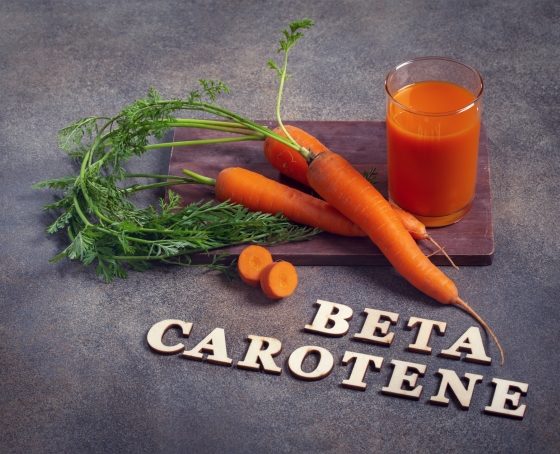A Colorful Nutrient With Powerful Health Effects
If you’ve ever enjoyed the bright orange of a carrot or the vibrant hue of sweet potatoes, you’ve seen beta-carotene in action. This colorful compound isn’t just pleasing to the eye — it’s a potent antioxidant and a provitamin A, meaning your body can convert it into the essential nutrient vitamin A.
From supporting eye health to boosting immunity, beta-carotene plays a key role in maintaining overall well-being. In this post, we’ll explore what it is, its top health benefits, and the best ways to include it in your diet.
What Is Beta-Carotene?
Beta-carotene is a red-orange pigment found in plants and fruits, especially those that are orange or dark green. It belongs to the carotenoid family — a group of antioxidants responsible for many of the vivid colors in nature.
When consumed, beta-carotene is converted by the body into vitamin A (retinol), which is essential for healthy vision, skin, immune function, and more.
Health Benefits of Beta-Carotene
1. 👁️ Supports Eye Health
- Helps maintain proper vision, especially in low light
- Reduces the risk of age-related macular degeneration and cataracts
- Essential for the health of the retina and cornea
2. 🛡️ Strengthens the Immune System
- Vitamin A plays a critical role in regulating immune responses
- Helps maintain the integrity of the skin and mucous membranes, your body’s first line of defense
3. 🧖 Promotes Healthy Skin
- Acts as a natural shield against UV damage and oxidative stress
- May help reduce skin aging and support wound healing
4. 🧬 Powerful Antioxidant
- Neutralizes free radicals that contribute to chronic diseases and cellular damage
- May reduce the risk of certain cancers (though more research is needed)
5. ❤️ Supports Heart Health
- Antioxidant activity may reduce oxidative damage to cholesterol and blood vessels
- Linked to lower inflammation and improved cardiovascular markers
Best Sources of Beta-Carotene
You’ll find beta-carotene in many colorful fruits and vegetables. Here are the top food sources:
🥦 Vegetables
- Carrots (the most famous source)
- Sweet potatoes
- Butternut squash
- Pumpkin
- Kale
- Spinach
- Collard greens
🍊 Fruits
- Mangoes
- Cantaloupe
- Apricots
- Papaya
- Red and pink grapefruit
💡 Pro Tip:
Beta-carotene is fat-soluble, meaning it’s best absorbed when eaten with a bit of healthy fat — like olive oil, avocado, or nuts.
Beta-Carotene Supplements: Use With Caution
While beta-carotene is available in supplement form, most people get enough from a balanced diet. However, supplements may be used in cases of vitamin A deficiency or in specific medical situations (under medical guidance).
⚠️ Caution:
- High-dose beta-carotene supplements have been linked to an increased risk of lung cancer in smokers or those exposed to asbestos.
- Too much beta-carotene can cause carotenemia — a harmless condition that turns your skin orange-yellow.

Beta-carotene is a nutrient-packed pigment with powerful antioxidant and provitamin A properties. It supports everything from eye health and immunity to skin and heart function. While it’s safe and beneficial when consumed through whole foods, supplements should be used cautiously and only when necessary.
✅ Quick Recap:
| Benefit | Why It Matters |
|---|---|
| Eye health | Supports night vision and prevents damage |
| Immune support | Strengthens natural defenses |
| Antioxidant protection | Fights oxidative stress and aging |
| Skin health | Protects against sun damage and aging |
| Heart health | May reduce inflammation and cholesterol damage |
| Top Foods | Carrots, sweet potatoes, spinach, mangoes |
| Best Absorption Tip | Eat with healthy fat for better absorption |
| Supplements? | Use cautiously, especially for smokers |

